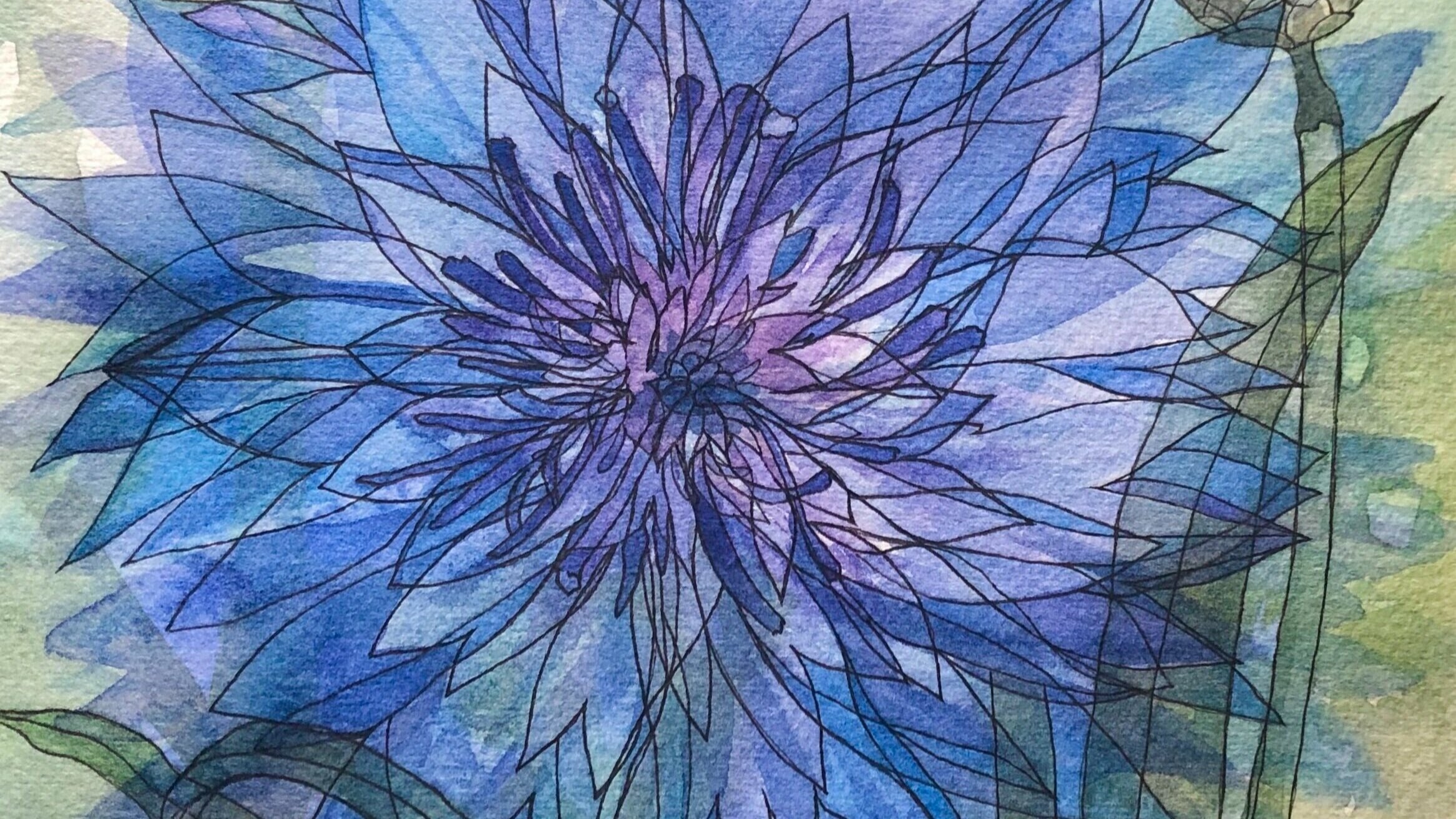The Dry Beach
Everyone, deep in their hearts, is waiting for the end of the world to come.
- Haruki Murakami, 1Q84
The speed at which things have been happening this year is absolutely blinding. The waves of catastrophic news never seem to stop, and in the midst of it all, ordinary life somehow goes on. There is a strong feeling of being left behind: the streets are still quieter, everyone is talking less, and there is a lot less energy to go around. 2020 feels like an endless time-loop.
Detail from Clock IV, 12 x 12 inches. Ink and watercolor on paper. Now available at Avenue 12 Gallery
However, this feeling of being left behind is somehow calming. Perhaps it’s something like suspended animation, and there is something surprisingly peaceful about that. The large-scale stuff, the news from “out there” is overwhelming and catastrophic. Sometimes I go out there—read the news, support the protests, help to register people to vote—and sometimes out there comes to me—as wildfire smoke, heat waves, and COVID restrictions . But the small-scale stuff seems to matter more now that so much of the large-scale stuff seems even farther outside my control. The crises themselves become a monotonous roar, a sea so packed with tsunami waves that it appears flat, undifferentiated. Nevertheless, I have never been more involved in my whole life with the large-scale stuff of out there.
Still, there’s this sense of standing on the shore, left behind on an empty beach. I know that me and everything I know and love could easily be swept out to sea to drown, but right now, I’m standing solidly on the beach, and the world comes to me in manageable and usually very welcome waves. There is still a lot I can do from here. The peace of the dry beach does have an edge of hopelessness to it, but somehow that’s okay, too.
Death of a Salesman, said a movie marquee.
The dry beach blinked at the marquee and speculated vaguely that a salesman might be a native of some country named Sales, probably in Asia. Then a wave broke and I remembered that I had read the play and I was aware sharply of the name of the country in which the salesman was a native.
I was grateful for the waves. The waves could remember, deduct, apply insight. The dry beach could not.
- Barbara O’Brien, Operators and Things
Operators and Things has been my favorite book since I first read it in 2014. The author, “Barbara O’Brien” (a pen name) is still unknown, and it is certainly possible the book is a work of fiction. However, it doesn’t have the feel of fiction; the narrator, whoever she is, gives a first-hand account of her descent into schizophrenia, and her brilliant, single-handed recovery from an intensely psychotic episode. The book was copyrighted in 1958 and reissued in 1975, and was certainly written before the advent of antipsychotic drugs, when psychoanalysis, shock treatments, insulin comas, and permanent institutionalization were the only tools doctors had to treat psychotic disorders. The later chapters of the book discuss the relationships between the conscious and unconscious mind, and between the faculties of creativity, intuition, delusion, and psychosis. Every word of this book is miraculous.
Detail from Cornflower, 8 x 8 inches. Ink and watercolor on paper.
I do not have a psychotic disorder myself, but creativity and intuition are essential parts of my personality. The cognitive loop between my conscious and unconscious brain systems is fundamental to how I make my art, as I imagine must be the case with nearly all artists. The author’s “Dry Beach” is a necessary rest in the wake of a grueling six months inside her psychotic episode. I suspect it was there even during the crisis itself—a place that could watch the storm. The part of us without understanding or insight is a useful, or at any rate, an inevitable place to stand during any momentous period of time. Such periods require a tremendous amount of exertion, whether in the form of labor, anxiety, joy, or anhedonia.
I believe that it is a mistake to try and evaluate the Dry Beach. It is the natural rest of the mind.


